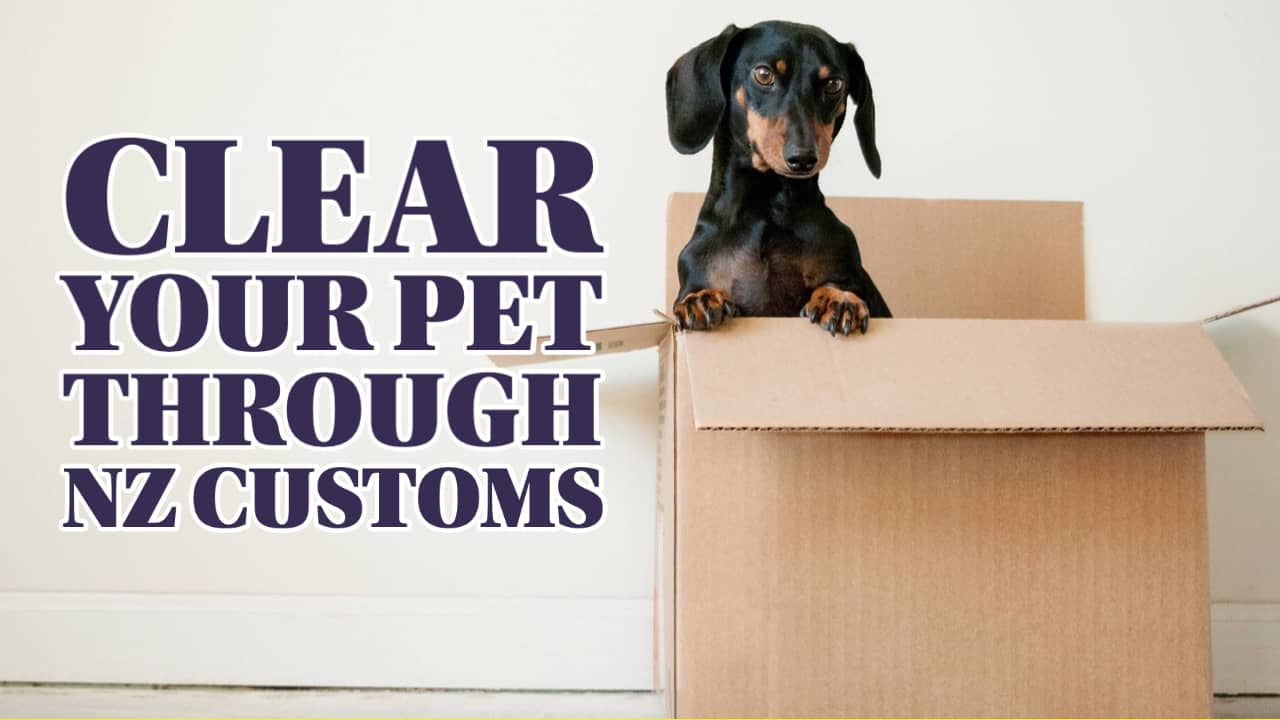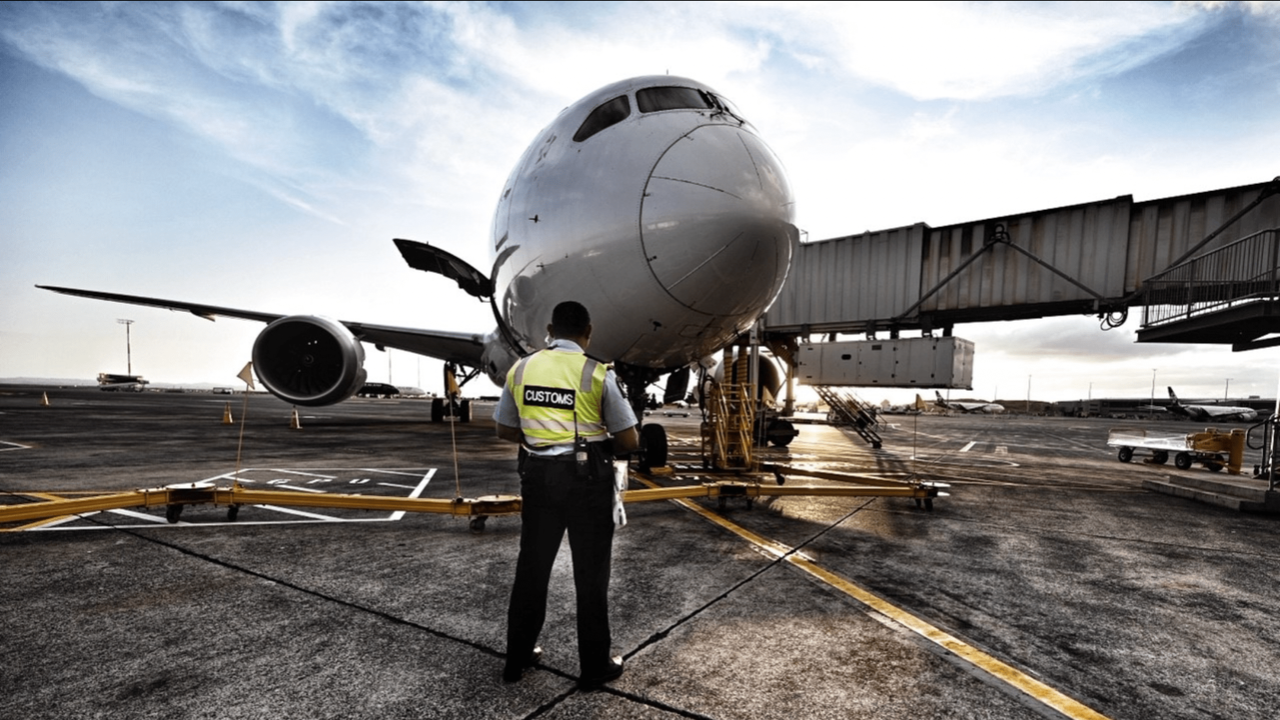
What You Must Know Before You Import Animals into NZ
5-minute read
Did you know that if you are importing pets to New Zealand, they must be cleared through Customs when they arrive in the country? And you may have to pay GST and duties on some animals.
There are strict rules you must follow when bringing live animals into New Zealand. This page sets out the Customs requirements, please refer to the Ministry for Primary Industries (MPI) website for the Biosecurity requirements.
If you’re bringing an animal into NZ for commercial reasons, you’ll need to contact a Customs broker to undertake the process for you. Commercial reasons include breeding, showing and racing.
It may be advisable to contact a professional pet exporter in your pet’s country to help arrange tests, treatments, flights, permits to import, shipping crates, and other requirements.
There are also some animals that aren’t allowed in NZ. You can’t bring in:
- live birds (MPI is working on an import health standard for companion birds)
- ferrets
- guinea pigs (except from Australia)
- mice and rats (except laboratory animals)
- snakes and other reptiles (except some reptiles for zoos).
You also can’t bring in dogs if they’re:
- American Pit Bull Terriers
- Brazilian Fila
- Dogo Argentino
- Japanese Tosa
- Perro de Presa Canario.
This prohibition does not apply if your dog is Registered under the Dog Control Act 1996 (NZ Legislation).
If you aren’t sure whether you can bring your pet into NZ, contact the Department of Internal Affairs.
If your dog is one of the listed breeds/types, you will also need to provide evidence that it has been certified as an assistance dog.
Required documents
- There are biosecurity requirements to prevent the spread of harmful pests and diseases, and you will need to apply for Biosecurity clearance (MPI). If you want to bring pets to New Zealand, find out what to do, what to expect, the costs, and how to apply on the MPI website
- An invoice or receipt showing the price paid for the animal. If you didn’t pay for your pet, Customs will need something to show their value
- An air waybill or Bill of lading to show how you’re transporting your pet to NZ and how much it’s costing
- Any extra required information, including vaccinations certificates and evidence you own the pet
- Personal photo identification, eg a passport or driver’s license.
If you’re clearing a pet on behalf of their owner, you must have:
- a signed letter from the owner, giving you permission to clear their pet(s) on their behalf
- a copy of the owner’s photo identification
- if the owner isn’t in NZ, a copy of their eTicket to NZ.
If you’re clearing a dog (or a dog embryo, ova or semen), you must have:
- evidence that you’ve registered the dog in New Zealand (done with local councils), or
- a vet certificate issued overseas saying that the dog semen is not from a Dangerous Breed, or
- a Statutory Declaration witnessed in NZ by an Authorised Witness.
GST and duties on imported pets
NZ Customs may charge GST on your pet(s) if they:
- were purchased online and are worth NZ$1000 or more (including any shipping costs)
- were sent as a gift, and the value is more than NZ$1000 (animals valued over $1000 will have the gift concession of $110 of value deducted before GST is applied).
Customs may also charge an import entry transaction fee.
There is no duty on animals. However, there is GST.
Concessions on imported pets
You may not have to pay GST and other charges if:
- you’ve been away from NZ for 21 months or more
- you’re in NZ on a work visa for more than 12 months
- you’re moving here for the first time as a resident, and you have owned the animal prior to your departure for NZ.
To qualify for a concession, your pet must arrive in NZ on the same flight you do.
Getting a clearance
If you’re importing an animal for any commercial reason, you need to arrange clearance with a Customs broker. Commercial reasons include:
- breeding
- showing
- racing.
If you’re bringing an animal in as a pet, you can get clearance from any Customs office in NZ – please refer to Customs guidance for private individuals. You can also use a Customs broker.
Important to note that international airlines only transport animals to Auckland and Christchurch.
We advise that Customs clearance is processed prior to the arrival of your pet in NZ to avoid unnecessary delays and additional costs.
What to do if importing animals?
Step 1
Research and begin undertaking the MPI biosecurity requirements. MPI’s website has a detailed breakdown of their requirements and step by step instructions.
Step 2
Arrange transport for your pet.
Your transport company will provide you with an Air Waybill, which you will need to complete this process.
Step 3
If you’re bringing a dog into NZ which has not been previously registered in NZ, you are required to complete an Exempting Statutory Declaration.
Step 4
Prior to the animal arriving in NZ, if possible, email service.delivery@customs.govt.nz with the following documents (alternatively, you can contact a Customs broker to manage the process for you):
- NZCS 231 Bringing a Pet or Other Animal into NZ
- Copy of your photo ID
- Proof of purchase or Evidence of ownership (if available)
- Air Waybill
- Veterinary Certificates (as required by MPI)
- Exempting Statutory Declaration (if required)
Step 5
If you’ve purchased the animal from overseas and you live in NZ, Customs will issue you an invoice based on the Customs Value of your animal, which is the cost of the animal in New Zealand Dollars, as well as the cost of shipping and any insurance.
This invoice amount will be made up of:
- 15% GST
- $55.71 Import Transaction Fee
If you’re moving back to NZ after having been away for more than 21 months or are moving here for the first time, you may not have to pay the 15% GST. The Customs Officer who is processing your application will assess if you must pay GST.
Step 6
Pay your bill
Step 7
You’ll receive confirmation of payment, and a delivery order will be sent to the company that is transporting your animal.
Once you’ve also completed the MPI Biosecurity requirements, you’ll be able to collect your animal.
Please note that your animal may be subject to quarantine requirements which are set out on MPI’s importing animals page.
The above information is intended as a guide only. Regulations can change without notice, and for specific guidance or questions about importing animals, please refer to the MPI or NZ Customs websites.
Source: NZ Customs and Ministry for Primary Industries
P.S. Easy Freight Ltd helps New Zealand importers & exporters to save money on international freight and reduce mistakes by guiding how to comply with Customs and biosecurity rules.
➔ Contact us now to learn how we can assist you.


